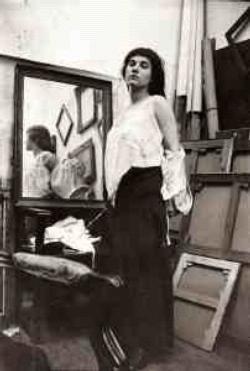Bonnard, Degas, Vuillard
dal 28/4/2004 al 20/6/2004
Segnalato da
28/4/2004
Bonnard, Degas, Vuillard
Fundacao Arpad Szenes, Lisboa
This exhibition of photographs by three major artists will be held under the auspices of Henri Cartier-Bresson. In a few short lines he justly defined what these three approaches have in common: each of these precious documents highlights the importance of the individual gaze. Here are three different ways of capturing the time and movement of images and reducing them to one frame without losing the breathlessness of their magic

This exhibition of photographs by three major artists will be held under the auspices of Henri Cartier-Bresson. In a few short lines he justly defined what these three approaches have in common: each of these precious documents highlights the importance of the individual gaze. Here are three different ways of capturing the time and movement of images and reducing them to one frame without losing the breathlessness of their magic. Images, which in the chiaro-scuro of the black and white, include a world of detail naturally incorporated in the order of the composition.
Consciously or unconsciously, the setting of the image expresses the particular sensitivity of the photographer. That of Bonnard reveals purity in sensuality which never ceases to move us. That of Degas, a more sophisticated gaze, pursues the permanence of a gesture or a presence. That of Vuillard conveys a feeling of intimacy and serenity. Whether it be due to the elementary Kodak camera which produces films in a reduced format or to the glass plate apparatus used by Degas – sometimes supplied with a timer to produce self-portraits – the images often show, through the haloes, that the lighting has been reworked: all uncover that they used techniques to capture reality similar to those used in their painting and a feeling of passion in setting down on camera events and moments of sensibility. These early photographs supply us with the ever topical, ever desirable presence of a poetic spirit, away from the turmoil of trends and generations. A mystery in silence.
What holds our attention in this first photographic confrontation between these three major artists is obviously not so much the similarities between them but rather the freedom of their action, the curiosity they reveal, the permanence in their personal approaches in expressive settings, in the musicality of light and in the exquisite pleasure of surprise.
Image: Bonnard, Modèle retirant sa blouse dans l'atelier du peintre, 1916
Fundacao Arpad Szenes - Vieira da Silva
Praça das Amoreiras, 56-58 - 1250-020 - Lisboa – Portugal
Opening hours:
Monday to Saturday:11h00 –19h00
Closed on Tuesdays and public holidays



